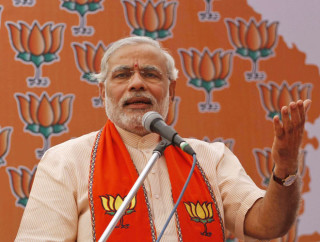The election of Arvind Kejriwal as the Chief Minister of Delhi stole the spotlight from the idolatrous Gujarat Chief Minister Narendra Modi whose campaign had so far gained momentum and public support. The Delhi election results took both Congress and BJP by shock as neither of the parties had anticipated the strong support and faith which was deep-rooted in the people towards AAP. And ever since the election results, Arvind Kejriwal has tried to fulfil all the promises that he had made throughout his election campaign. Though the steps he has taken so far have been debatable and controversial, it is certain that they have attracted a lot of attention of the media and the aam junta.
But what is interesting to note is that AAP is the talk of the town. And with the general elections a few months away, the people cannot help but speculate about how AAP will fare when it contests for the Lok Sabha elections. And this very fact and popularity of AAP is starting to scare its competitors. Congress is playing the role of the sycophant by sweet-talking AAP whereas BJP is starting to grow restless. And when Mr. Modi could contain it no longer, the BJP decided to make news.
On 5th of January 2014, Narendra Modi, the priministeral candidate for BJP promised to reform the taxation system, which has proven to be a burden for many income-earners. Though he didn’t give clear indications regarding whether or not he will abolish the existing system, he proposed a Banking Transaction Tax as the new system of taxation. The system levies tax on the debit entries that are made in banking transactions and directly helps in the transference of these funds to the state or the center, so as to simplify the tiresome and arduous clearance and settlement processes. This system was prevalent in some foreign countries such as Australia and other Latin American countries, however it was abolished due to tax reforms in all the countries. What prompted Narendra Modi to propose this failed system of taxation continues to remain a mystery.
In a country where corrupt practises are highly prevalent and the black money is estimated to amount to 13 times the country’s national debt, the question to ask is whether such a system of taxation will add to the black money by resulting in people diverting from banking to cash transactions. Also, almost 50% of Indians don’t have savings accounts in banks, and the introduction of such a tax will definitely prevent them from opening up bank accounts. So will this simplified taxation system work at the cost of financial inclusion in India?


































